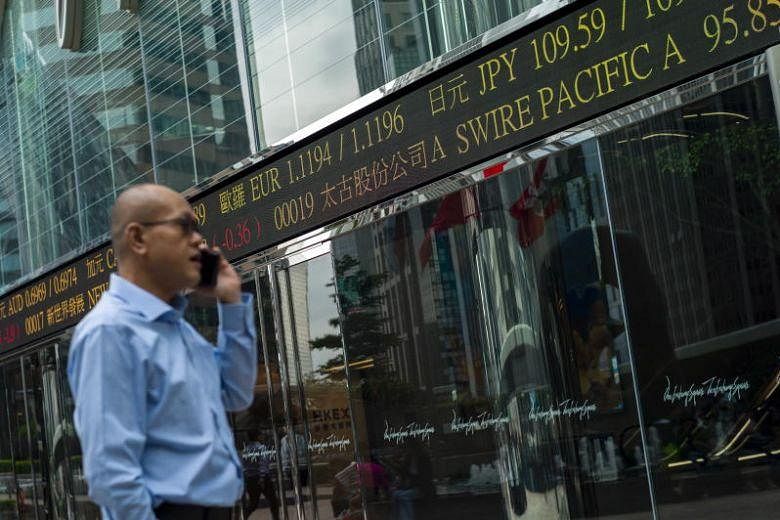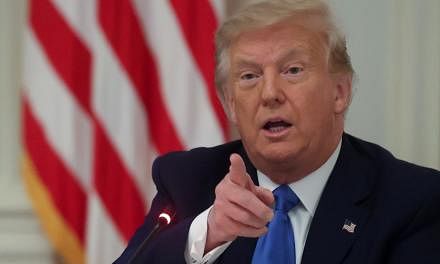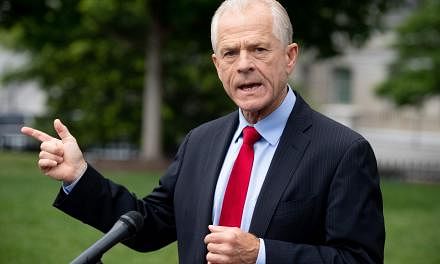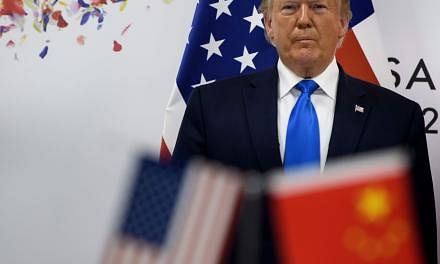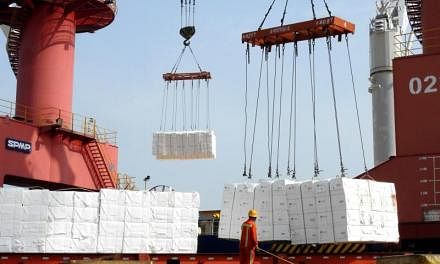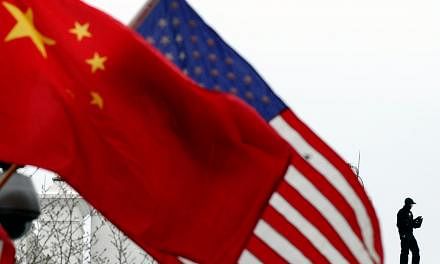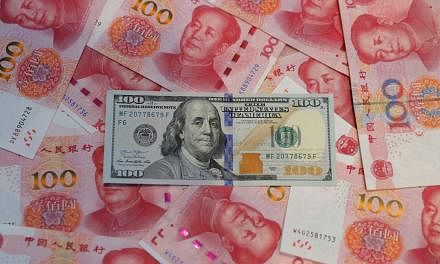Asian stock markets largely posted gains yesterday after a volatile session stemming from an escalation in trade tensions between the United States and China.
But analysts warned that the tariff war between the two giants will weigh on the already slower pace of growth in the region.
At noon (Singapore time), US President Donald Trump raised tariffs on US$200 billion (S$273 billion) worth of Chinese goods from 10 per cent to 25 per cent, hitting products ranging from live fish to air-conditioners. China responded shortly after, saying it will hit back.
Meanwhile, both sides continued their negotiations in Washington for a trade deal.
Said Maybank Kim Eng economist Chua Hak Bin: "Many would argue that it's in the interest of President Trump to seal a deal, to say he succeeded in extracting some concessions from China. It would give him something to show as he seeks re-election in 2020."
Dr Chua noted that markets are still praying for a deal. "If Chinese Vice-Premier Liu He leaves the US without a deal, I suspect the markets may collapse next week."
Many harboured hopes that there was still a chance of salvaging the negotiations, as Mr Trump said earlier yesterday that he had received a "beautiful letter" from Chinese President Xi Jinping.
Despite the tariff hike, Chinese stocks recovered to close higher as Beijing moved to stabilise the market. The Shanghai Composite rose 3.1 per cent after a brief dip, with Bloomberg reporting that Chinese state funds were seen buying stocks when markets reopened yesterday afternoon.
Hong Kong's Hang Seng Index closed 0.84 per cent higher, while South Korea's Kospi Index closed 0.29 per cent up. Singapore's Straits Times Index edged up 0.12 per cent and the Jakarta Composite Index was up 0.17 per cent.
Japan's Nikkei 225, however, closed 0.27 per cent lower and Malaysia's Kuala Lumpur Composite Index was down 0.51 per cent.
Analysts foresee greater uncertainty for Asian economies after yesterday's hike. "While we believe a trade deal will eventually be reached... the risk of a complete breakdown in trade talks has certainly increased," Moody's Investors Service credit strategist Michael Taylor wrote yesterday in a report.
Dr Chua also had a word of caution, saying: "We were all counting on some kind of trade deal to revive exports and investments in the second half of the year, but that may no longer be on the cards." Although there is risk of a recession in a full-blown trade war, he said, Singapore has "a lot of fiscal space to respond" to cushion a downturn.
DBS senior economist Irvin Seah said his near-term forecast has not changed. He said: "Trade deal or not, the US economy's fundamentals remain firm... In China, policymakers are ready to ensure more solid support for the economy."
But, he added, US-China tensions extend beyond trade to more complex issues such as digital sovereignty and intellectual property protection, and firms need to consider them in their plans.
Singapore Business Federation chairman Teo Siong Seng said that while the impact on businesses here will not be immediate, the extent of the fallout remains unclear.
Singapore may see some benefits with a reconfiguration of supply chains, but "not all things can be relocated out of China", he said.
The shift to South-east Asia will not be immediate as well, and Chinese imports of raw materials or semi-finished products from the region will take a hit.
SEE BUSINESS: S'pore shares up on hopes of US-China deal
